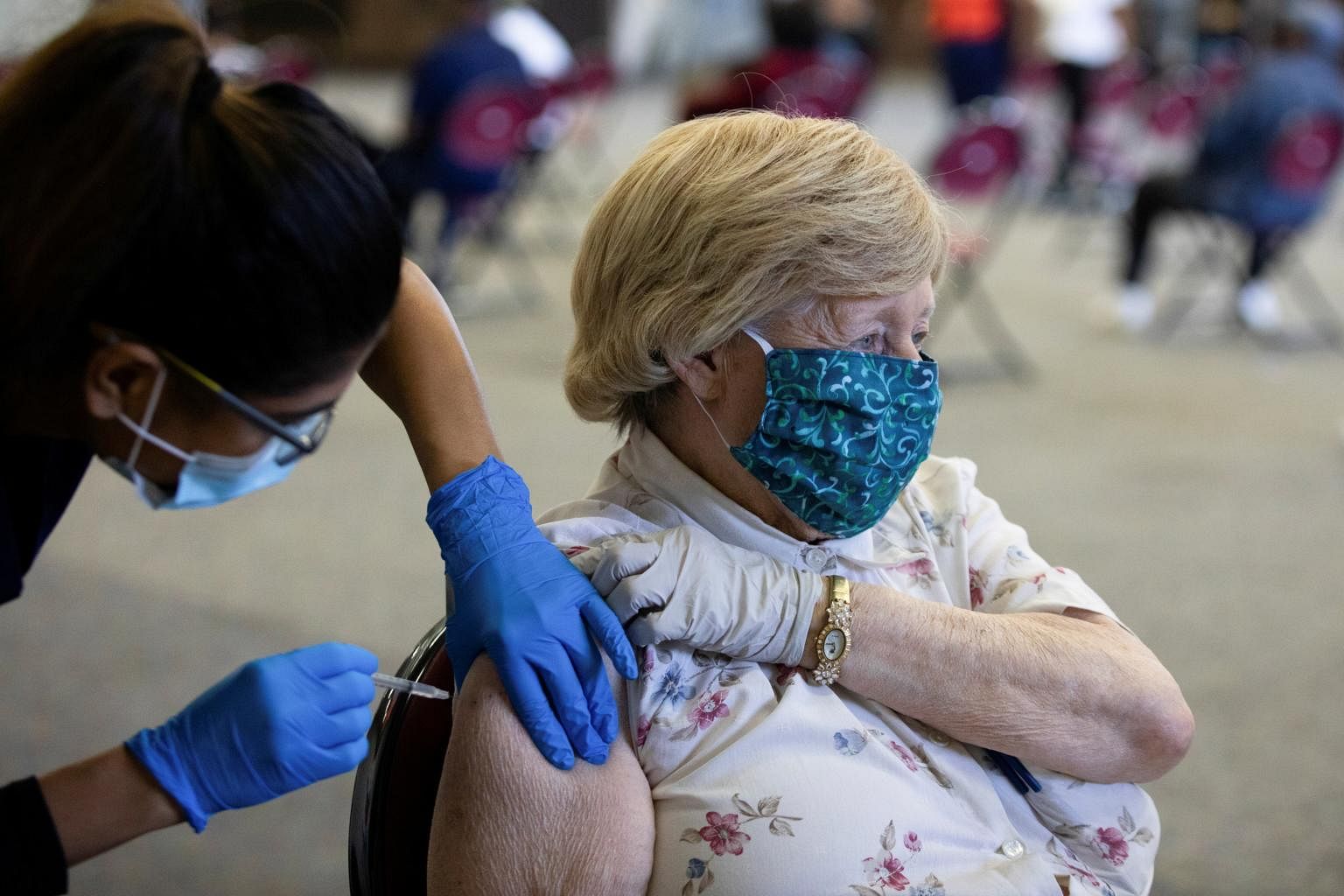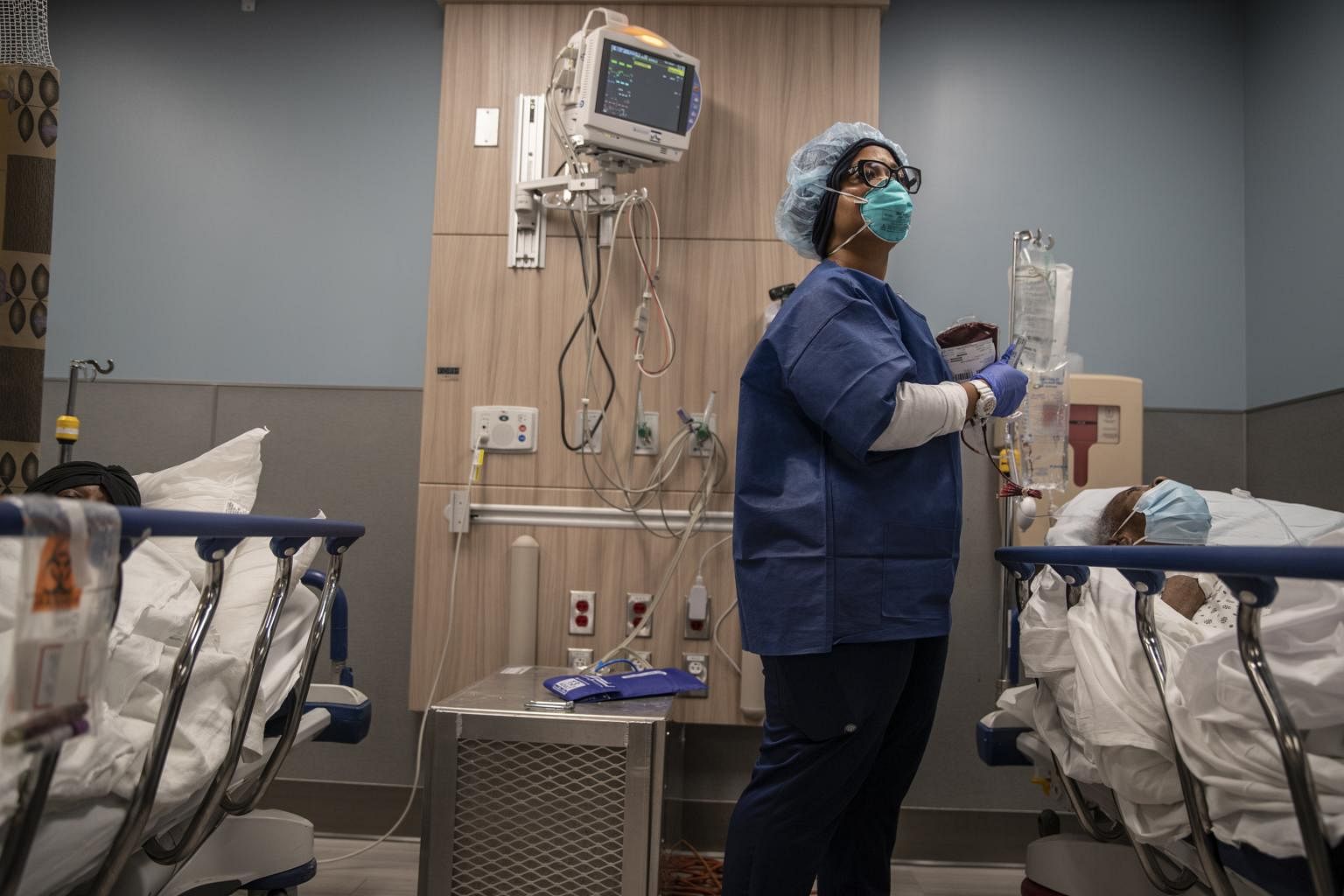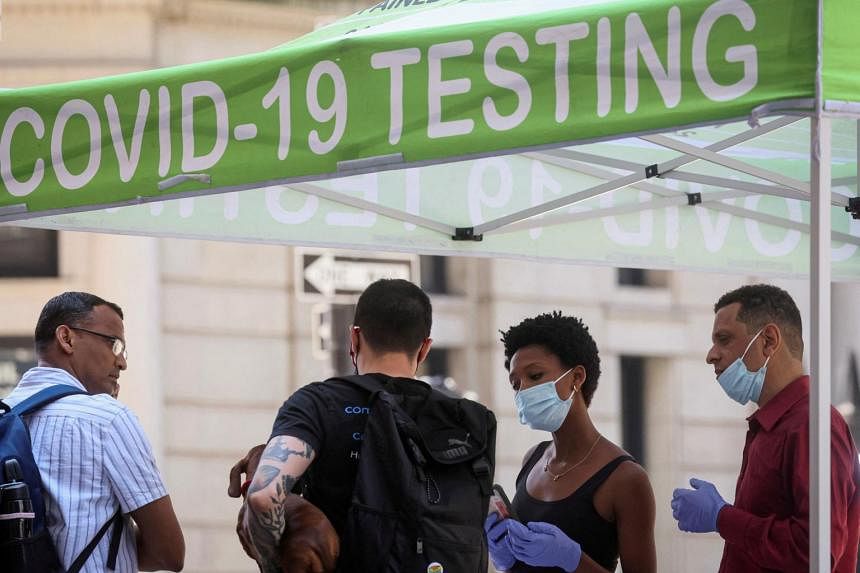WASHINGTON - With 400 to 500 Americans still dying every day of Covid-19, President Joe Biden has declared that "the pandemic is over".
But don't tell that to people like Ms Debra McCoskey-Reisert, whose mother died in early August. Or Mr Ben HsuBorger, who has chronic fatigue syndrome, a condition often brought on by viruses, including the coronavirus. Or Mr Peter W. Goodman, whose wife died on Aug. 17.
"It's not over for me," said a tearful Mr Goodman, 76, who is retired after working as a journalism professor at Hofstra University on Long Island. Both he and his wife, Debbie, 70, became sick with Covid-19 last month. He recovered. She did not.
The president made the remarks while speaking in an interview that aired on CBS' 60 Minutes on Sunday night. By Monday morning, the backlash was in full swing - as patients said the president was being insensitive at best, and some public health experts said his words were at odds with the science.
'People are still dying'
"We've had 2 million cases reported over the last 28 days, and we know underreporting is substantial," said Dr Michael Osterholm, an infectious-disease specialist at the University of Minnesota. Covid-19, he said, "continues to be the No. 4 cause of death in the country."
In the 60 Minutes interview, which was taped during the Detroit Auto Show last week, Mr Biden did allow that "we still have a problem with Covid". But he also gave a nod to the unmasked crowds at the show.
"The pandemic is over," he said. "If you notice, no one's wearing masks. Everybody seems to be in pretty good shape."
The word from the White House on Monday was that the president was simply expressing what many Americans were already feeling and seeing and what Mr Biden had been saying all along - that the nation has vaccines and treatments to fight the coronavirus and that for most people, it is not a death sentence.
Dr Xavier Becerra, Biden's health secretary, echoed the sentiment while getting his booster shot at a community health clinic in New York.
"I think the president was reflecting what so many Americans are feeling and thinking," Dr Becerra said, "that Covid has disrupted our lives for so long, but we're also finding that with these effective vaccines, with masking, with the efforts to protect our children, seniors, we are learning how to cope with this virus. But make no mistake. People are still dying."
'Unfortunate sound bite'
But it's one thing for ordinary Americans to think and feel that the pandemic is over; it is another thing for the president to say it.
Presidential pronouncements carry policy implications, and the Biden administration had to answer questions on Monday about whether the president's words would change anything. The short answer: No, they will not.
Dr Becerra's agency, the Department of Health and Human Services, said the Covid-19 public health emergency, which gives the government flexibility to waive or modify requirements for health-related programmes such as Medicare and Medicaid, remained in effect.
Much of Mr Biden's domestic agenda is entangled with the coronavirus pandemic as well. Late last month, his administration announced it was cancelling US$10,000 (S$14,000) in federal student loan debt for certain borrowers to ensure that they were "not placed in a worse position financially because of the pandemic".

The White House is also pressing Congress to appropriate an additional US$22 billion to fight the pandemic.
The president's comments could complicate that effort - as well as the administration's campaign to persuade Americans to take the newly authorised "bivalent" booster shots, just as a possible fall surge is coming, said Dr Jennifer Nuzzo, director of the Centre for Pandemic Preparedness and Response at the Brown University School of Public Health. "An unfortunate sound bite," she said of Mr Biden's remarks.
Plain wrong
Other experts said Mr Biden was just plain wrong.
To begin with, the president does not have the authority to announce an end to the pandemic. The World Health Organisation, an arm of the United Nations, designated the coronavirus outbreak a pandemic in 2020. If anyone is responsible for declaring an end, experts say, it would be the organisation and its director-general, Dr Tedros Adhanom Ghebreyesus.
"We are not there yet," Dr Tedros said last week. "But the end is in sight."
In the United States, data show that the pandemic is in what Dr Osterholm calls a "high plains plateau".
Gone are the peaks and valleys that came and went with the Omicron surge in late 2021 and early 2022. Hospitalisations are now declining, though roughly 32,000 Americans are still hospitalised with coronavirus infection each day, according to a New York Times database.

The number of deaths today is far lower than it was a year ago, when the Delta variant was causing nearly 2,000 deaths per day.
"We still have 400 to 500 people dying daily in this country," said Dr Carlos del Rio, an infectious disease expert at Emory University in Atlanta. "If that's over, it's a little too high to me."
And for many Americans who are still experiencing the fallout from the worst public health crisis in a century, Mr Biden's remarks - and the suggestion that the nation is moving on - were painful.
'Still sick, still fighting'
Many of those who are now dying of Covid-19 are either older (Ms McCoskey-Reisert's mother, Roberta, was 81) or have underlying illnesses (Mr Goodman's wife had lupus, which made her vulnerable).
"Let's not make premature declarations," said Ms McCoskey-Reisert, a retired business professor from Citrus Springs, Florida, whose mother died on Aug 6. "People are still dying."
Others say their lives are forever changed.
"For us, there is no normal that we can go back to," said Mr HsuBorger, seated in a wheelchair. He had just led a group of patients with myalgic encephalomyelitis, a complex disorder also known as chronic fatigue syndrome, in a protest outside the White House. Many have long Covid. Their T-shirts declared: "Still Sick. Still Fighting." NYTIMES











